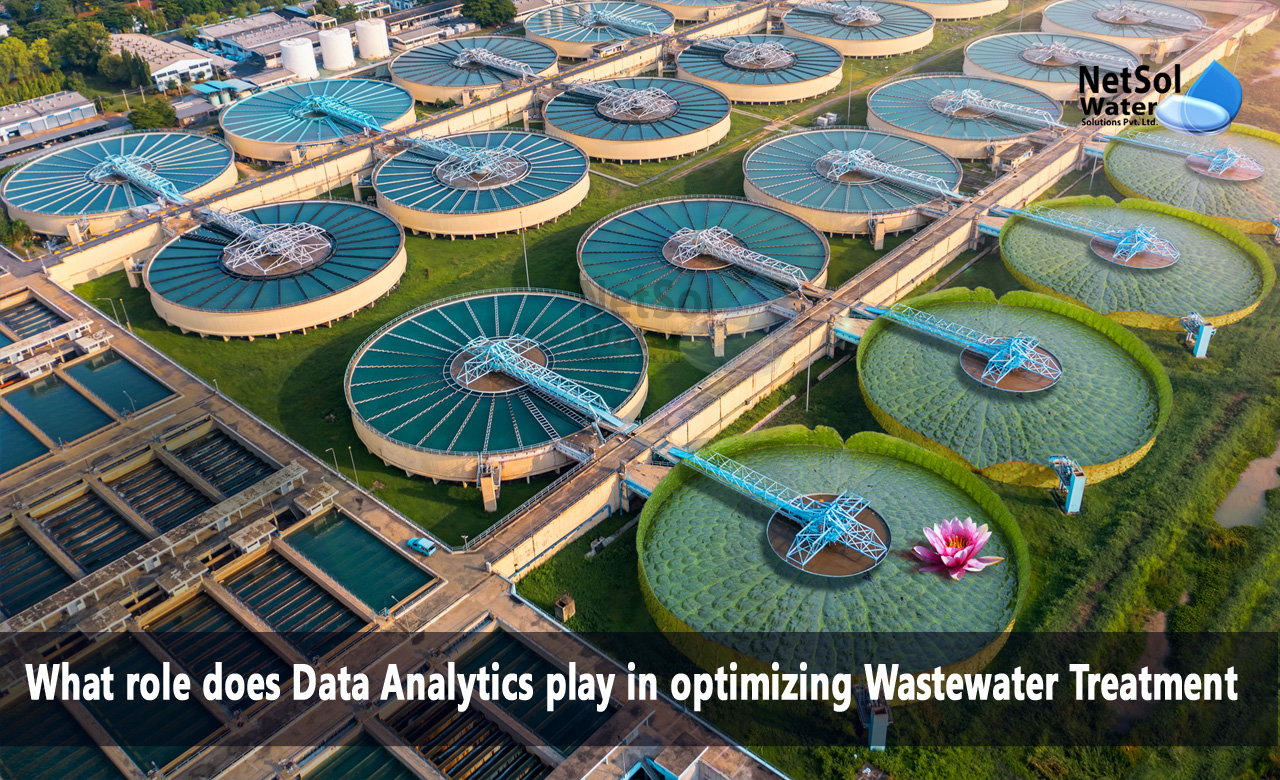What role does Data Analytics play in optimizing Wastewater Treatment?
Wastewater treatment is a key technique that guarantees safe sewage and industrial effluent disposal while safeguarding the environment and public health. To reduce the harmful influence on our ecosystems, wastewater treatment facilities must run efficiently. Data analytics has developed as a valuable tool for enhancing wastewater treatment procedures in recent years. This blog examines how data analytics plays an important role in this industry.
Real-time Monitoring and Control
Real-time monitoring and management of wastewater treatment facilities is possible because to data analytics. Operators can acquire insights into the present status of the plant by gathering data from numerous sensors and devices. This information enables them to make fast modifications, providing a smooth and efficient treatment process.
For example, if there is an unexpected increase in wastewater flow, data analytics can provide warnings and recommend the proper response, such as increasing chemical doses or activating extra treatment units. This fast reaction capacity is critical for averting overflows and adhering to environmental standards.
Predictive Maintenance
Wastewater treatment facilities include complicated mechanical and electrical systems that must be maintained on a regular basis in order to function properly. Based on prior performance data, data analytics can forecast when equipment may break. This proactive approach to maintenance decreases downtime, increases equipment longevity, and lowers operational expenses.
Maintenance plans may be enhanced by monitoring data from pumps, motors, and other important components to replace parts before they fail, decreasing the chance of costly failures and guaranteeing consistent treatment plant operation.
Process Optimization
Data analytics is crucial in improving the treatment procedure itself. Operators can spot trends and patterns in previous data, which leads to process improvements. For example, the system can recommend modifications to chemical doses or operating factors to improve treatment efficiency.
These data-driven insights have the potential to cut energy use, enhance treatment outcomes, and save money. Process optimization also adds to the overall sustainability of wastewater treatment by reducing the plant's environmental effect.
Compliance and Reporting
Environmental restrictions are a primary responsibility for wastewater treatment plants. By continually monitoring and documenting crucial factors, data analytics helps guarantee that treatment operations fulfill regulatory criteria. This information may be used to create compliance reports and establish compliance with regulatory standards.
Wastewater treatment plants can decrease the risk of regulatory infractions and related fines by automating data collection and analysis. Furthermore, this transparency fosters confidence with regulatory authorities and the general public by demonstrating responsible wastewater management.
Resource Allocation
Another key part of wastewater treatment is resource allocation optimization. Data analytics enables more effective resource allocation, such as chemicals, energy, and labor. Plants can decrease waste and operational costs by knowing how these resources are used in the treatment process.
For example, if data analysis shows that energy consumption is highest at specific times of day, the plant might change its operational schedule to take advantage of off-peak electricity prices, resulting in considerable cost savings.
Conclusion
Data analytics is no longer a luxury in the wastewater treatment industry; it is a must. It enables treatment facilities to function more effectively, decrease operating costs, and assure environmental compliance. Real-time monitoring, predictive maintenance, process optimization, compliance reporting, and resource allocation are just a few of the ways data analytics helps with wastewater treatment optimization.
As the globe grapples with the difficulties of population expansion and growing pollution, the role of data analytics in wastewater treatment will become increasingly important. We can move towards a cleaner, more sustainable future while successfully managing our water supplies if we harness the power of data.
Netsol Water is Greater Noida-based leading water & wastewater treatment plant manufacturer. We are industry's most demanding company based on client review and work quality. We are known as best commercial RO plant manufacturers, industrial RO plant manufacturer, sewage treatment plant manufacturer, Water Softener Plant Manufacturers and effluent treatment plant manufacturers. Apart from this 24x7 customer support is our USP. Call on +91-9650608473, or write us at enquiry@netsolwater.com for any support, inquiry or product-purchase related query.



